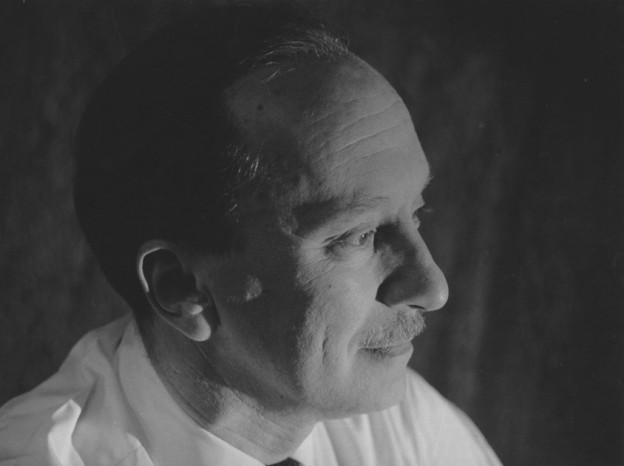At the two-day festival “Forbidden Songs,” attendees will hear long-lost music by Roman Palester and view an iconic film about how Warsaw’s street musicians fought the Nazi invasion, presented for the first time with English subtitles. Although Palester was one of the most distinctive composers of twentieth-century Poland, his compositions have been virtually forgotten, due in large part to censorship in communist Poland. “Forbidden Songs” brings Palester’s neoclassical and lyrical style to a new audiences and also explores his substantial work with film.
On the first day of the festival, the English-subtitled version of the film Forbidden Songs (1947) will see its world premiere at Swarthmore. The film tells the story of everyday life in Warsaw during World War II through popular “street songs” banned during the Nazi occupation. The film score was created by Palester and includes newly composed music as well as arrangements of the featured songs. Professor Barbara Milewski of Swarthmore College will introduce the film and reveal some of the hidden stories it has held since its creation. As she explains, “The film compels us to consider the tensions between personal and official acts of remembering—and forgetting—within the contexts of Poland’s historically oppressive regimes and the nation’s contemporary politics. It also gives us a glimpse into the ways in which music helped Polish Jews and non-Jews alike to reclaim notions of community in the immediate postwar years.” Mackenzie Pierce ‘11, a PhD Candidate in musicology at Cornell University, will deliver the Peter Gram Swing lecture earlier that day: “Beyond Historical Rupture: Classical Music and the Second World War in Poland,” which will place Palester in a broader musical and historical context.
Day two of the festival will feature performers Xak Bjerken, Lucy Fitz Gibbon, Ryan MacEvoy McCullough, Susan Waterbury, and David Colwell in the American premiere of Palester’s chamber music and vocal works, which span Palester’s entire career from the 1930s to the late 1970s. Says Pierce, “In Poland today, memory of the Second World War is inescapable. By looking at music during the war and in its immediate aftermath, we can peel back some of these later political interpretations and recover the complexity and ambiguity of the heady postwar moment.” Pierce is particularly fascinated by the difficult choices musicians in postwar Poland faced: leave the country and work abroad, or stay and endure the risks of an authoritarian regime. Those who left often had their music banned and subsequently forgotten, like Palester.
Milewski and Pierce first met at Swarthmore as professor and student, but now see each other as colleagues with shared scholarly interest in the music of mid-century Poland. Both emphasize the great interdisciplinary value in this festival, which will draw people interested in European cinema and music, WWII history and politics, and Holocaust studies. On the significance of Palester’s life and work, Pierce says, “He had to overcome two authoritarian regimes: first, the brutal and terrorizing Nazi occupation and then the repressive communist government that rebuilt Poland from the rubble up. His compositions provide insight into how music creates a sense of continuity over rupture. They also remind us that every step towards war and censorship strikes at the lifeblood of an artistic culture.”
The Forbidden Songs Festival will take place on Thursday, March 22nd and Friday, March 23rd. On Thursday, Mackenzie Pierce will give his lecture on “Classical Music and the Second World War in Poland” at 4:30 PM in Lang Concert Hall. This event will be followed by the world premiere of the film Forbidden Songs at 8PM in LPAC 101 Cinema. On Friday, the performance of Roman Palester’s works will take place at 8PM in Lang Concert Hall. These events are free and open to the public. For more information, visit https://www.swarthmore.edu/music/concerts-events or forbiddensongs.org
Maya Kikuchi ‘20
